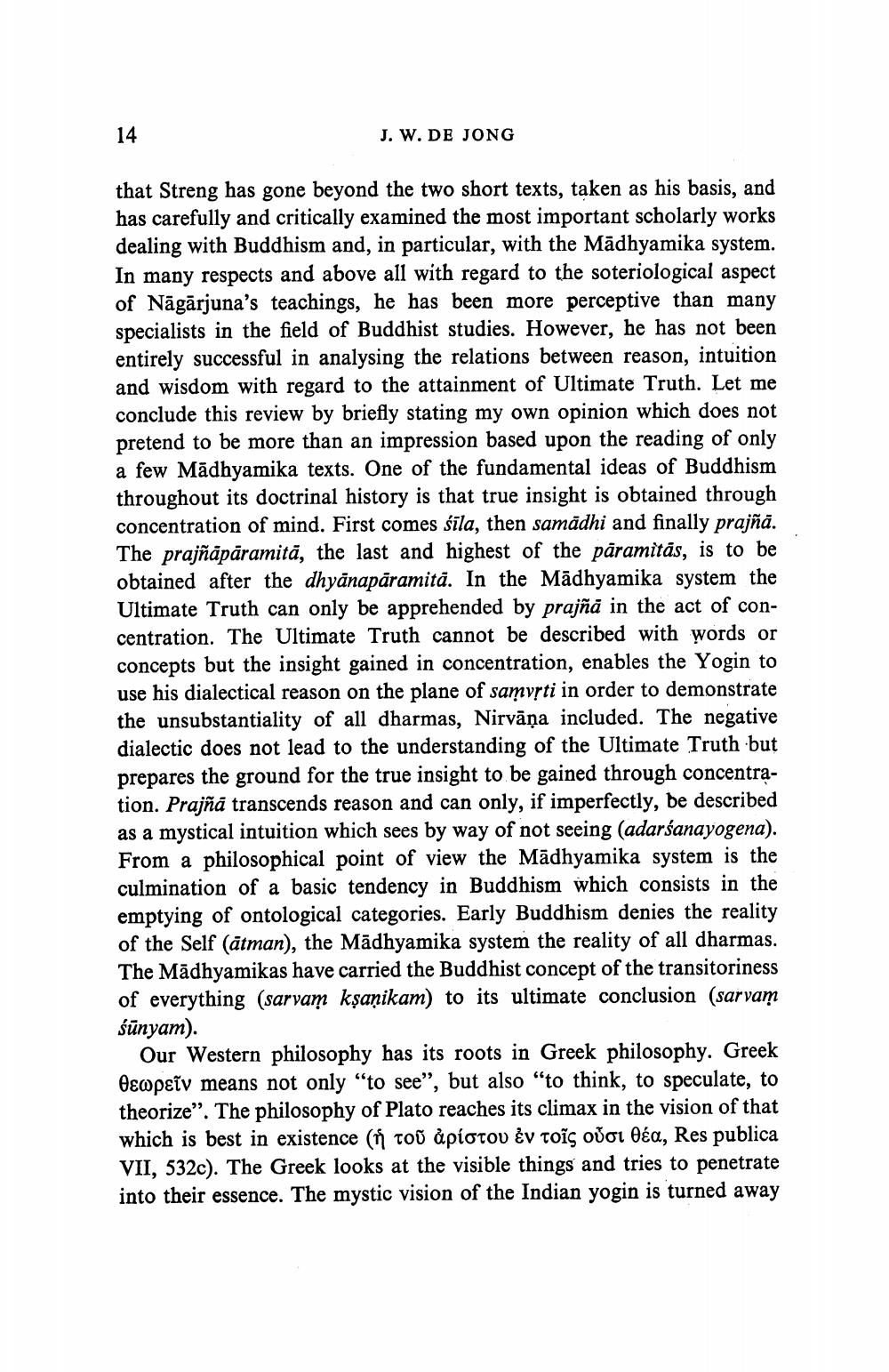Book Title: Emptiness Author(s): J W De Jong Publisher: J W De Jong View full book textPage 8
________________ J. W. DE JONG that Streng has gone beyond the two short texts, taken as his basis, and has carefully and critically examined the most important scholarly works dealing with Buddhism and, in particular, with the Madhyamika system. In many respects and above all with regard to the soteriological aspect of Nāgārjuna's teachings, he has been more perceptive than many specialists in the field of Buddhist studies. However, he has not been entirely successful in analysing the relations between reason, intuition and wisdom with regard to the attainment of Ultimate Truth. Let me conclude this review by briefly stating my own opinion which does not pretend to be more than an impression based upon the reading of only a few Madhyamika texts. One of the fundamental ideas of Buddhism throughout its doctrinal history is that true insight is obtained through concentration of mind. First comes śīla, then samadhi and finally prajñā. The prajñāpāramitā, the last and highest of the päramitās, is to be obtained after the dhyānaparamita. In the Madhyamika system the Ultimate Truth can only be apprehended by prajñā in the act of concentration. The Ultimate Truth cannot be described with words or concepts but the insight gained in concentration, enables the Yogin to use his dialectical reason on the plane of samvști in order to demonstrate the unsubstantiality of all dharmas, Nirvāṇa included. The negative dialectic does not lead to the understanding of the Ultimate Truth but prepares the ground for the true insight to be gained through concentration. Prajñā transcends reason and can only, if imperfectly, be described as a mystical intuition which sees by way of not seeing (adarśanayogena). From a philosophical point of view the Mādhyamika system is the culmination of a basic tendency in Buddhism which consists in the emptying of ontological categories. Early Buddhism denies the reality of the Self (atman), the Mādhyamika system the reality of all dharmas. The Madhyamikas have carried the Buddhist concept of the transitoriness of everything (sarvam kşaņikam) to its ultimate conclusion (sarvam śünyam). Our Western philosophy has its roots in Greek philosophy. Greek De@pety means not only “to see”, but also “to think, to speculate, to theorize”. The philosophy of Plato reaches its climax in the vision of that which is best in existence (ή του αρίστου εν τοίς ούσι θέα, Res publica VII, 532c). The Greek looks at the visible things and tries to penetrate into their essence. The mystic vision of the Indian yogin is turned awayPage Navigation
1 ... 6 7 8 9
